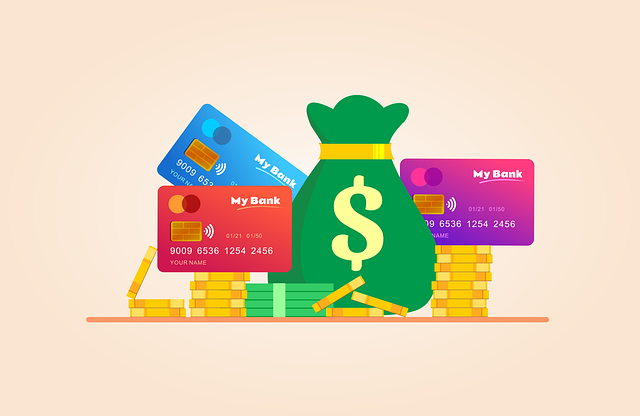Before diving into the steps, let’s understand what a 700 credit score is. A credit score is a numerical representation of your creditworthiness. It’s determined by various factors such as your payment history, credit utilization, length of credit history, and types of credit used.
For more detailed insights on financial success, you can check out Wealth Building: A Complete Guide to Financial Success.

Components of a Credit Score
- Payment History (35% of score):
This is the most important factor in your credit score. It records whether you’ve paid your credit accounts on time. Late payments, defaults, and collections can heavily impact your credit score. - Credit Utilization (30% of score):
This measures how much of your available credit you’re using. If you’re using a high percentage of your available credit, it suggests you’re over-relying on credit and may have trouble repaying. - Length of Credit History (15% of score):
This considers how long your credit accounts have been open. A longer credit history can indicate stability and responsibility with credit. - Credit Mix (10% of score):
This looks at the different types of credit accounts you have, such as credit cards, mortgages, and auto loans. Having a mix of credit types can be beneficial. - New Credit (10% of score):
This looks at how many new accounts you’ve opened and how many hard inquiries have been made on your credit report. Too many new accounts or inquiries can be seen as a risk.
Why a 700 Credit Score Matters
Achieving a 700 credit score can significantly enhance your financial standing. Here’s why:
- Lower Interest Rates: With a 700 credit score, you’re likely to qualify for lower interest rates on loans and credit cards. This can save you thousands of dollars over time.
- Better Loan Approval Odds: Lenders are more likely to approve your loan applications if you have a good credit score. This includes mortgages, auto loans, and personal loans.
- Higher Credit Limits: Credit card issuers may offer you higher credit limits, giving you more flexibility in managing your finances.
- Better Insurance Rates: Some insurance companies use credit scores to determine premiums. A higher credit score can lead to lower insurance rates.
- Rental Applications: Landlords often check credit scores when evaluating rental applications. A good credit score can make it easier to secure an apartment or rental home.
Step-by-Step Guide to Achieving a 700 Credit Score
1. Check Your Credit Report (Day 1)
Start by obtaining your credit report from trusted sources like Annual Credit Report. This report includes information from the three major credit bureaus: Experian, TransUnion, and Equifax.
- Review for Errors: Carefully check your credit report for any errors or discrepancies. Common errors include incorrect personal information, accounts that don’t belong to you, incorrect account statuses, and outdated information.
- Dispute Errors: If you find any errors, dispute them immediately with the credit bureau. Provide documentation to support your claim. Correcting these errors can have a significant impact on your 700 credit score.
2. Pay Your Bills on Time (Month 1-6)
- Set Up Automatic Payments: Many banks and credit card companies offer automatic payment options. This ensures that you never miss a payment.
- Use Reminders: Set up reminders on your phone or calendar to alert you a few days before your payment is due.
- Catch Up on Late Payments: If you have any late payments, catch up as soon as possible. The longer a late payment goes unpaid, the more it can hurt your credit score.
3. Reduce Your Credit Card Balances (Month 1-6)
Credit utilization is another crucial factor, making up 30% of your 700 credit score. Aim to keep your credit card balances below 30% of your credit limit. Here are some strategies:
- Create a Budget: Track your income and expenses to see where your money is going. Identify areas where you can cut back and use the extra funds to pay down your credit card balances.
- Make Multiple Payments: Instead of waiting until the due date, make multiple small payments throughout the month. This can help keep your balance low and reduce interest charges.
- Consider Balance Transfers: If you have high-interest credit card debt, consider transferring the balance to a card with a lower interest rate. Be mindful of any fees associated with balance transfers.
4. Avoid New Credit Applications (Month 1-6)
Each new credit application results in a hard inquiry, which can lower your 700 credit score temporarily. Here’s how to manage your credit applications:
- Limit New Applications: Avoid applying for new credit cards or loans during this period. Focus on managing your existing accounts.
- Use Pre-Qualification Tools: Some lenders offer pre-qualification tools that use a soft inquiry instead of a hard inquiry. This allows you to check your eligibility without impacting your credit score.
5. Become an Authorized User (Month 2)

Ask a family member or friend with a good credit score if you can become an authorized user on their credit card account. This can help you build a positive credit history. For understanding more about the psychology behind financial decisions, you can read The Psychology of Money.
- Choose the Right Account: Ensure that the primary account holder has a good payment history and low credit utilization. Their good behavior will reflect positively on your credit report.
- Communicate: Keep open communication with the primary account holder. Make sure they are comfortable with you being an authorized user and understand how it will affect their account.
6. Pay Down Existing Debt (Month 1-6)
If you have any outstanding debt, create a plan to pay it down. Here are some effective strategies:
- Snowball Method: This involves paying off your smallest debts first while making minimum payments on larger debts. As you pay off each small debt, you gain momentum and motivation to tackle larger ones.
- Avalanche Method: This involves paying off your highest-interest debts first while making minimum payments on lower-interest debts. This can save you money on interest in the long run.
- Debt Consolidation: Consider consolidating multiple debts into a single loan with a lower interest rate. This can simplify your payments and reduce your interest costs.
For more information on managing risk in investments, check out How Do You Manage Risk in a Portfolio Investment.
7. Monitor Your Credit Score (Month 1-6)
Regularly check your 700 credit score to track your progress. There are many free services like Credit Karma that provide regular updates and insights into your credit score.
- Set Alerts: Many credit monitoring services allow you to set alerts for changes in your credit score or report. This can help you stay informed and take action if necessary.
- Review Reports Regularly: Check your credit report regularly to ensure that all information is accurate and up to date.
Additional Tips for Maintaining a 700 Credit Score
Keep Old Accounts Open
The length of your credit history makes up 15% of your 700 credit score. Here are some tips for managing your credit accounts:
- Keep Old Accounts Open: Even if you don’t use them frequently, keeping old accounts open can positively impact your credit history.
- Use Sparingly: If you have old credit cards that you rarely use, make a small purchase occasionally and pay it off in full. This keeps the account active and contributes to your credit history.
Diversify Your Credit Mix
Having a mix of different types of credit, such as credit cards, auto loans, and mortgages, can positively impact your 700 credit score. Here are some tips:
- Maintain a Healthy Mix: If you have multiple credit cards, consider adding an installment loan, such as a personal loan or auto loan, to your credit mix. However, only do this if it makes financial sense for you.
- Avoid Unnecessary Credit: Don’t open new accounts just for the sake of diversifying your credit. Only apply for credit when you need it and can manage it responsibly.
Use a Secured Credit Card
If you have a limited credit history, consider using a secured credit card. Here’s how it works:
- Deposit as Collateral: Secured credit cards require a deposit, which acts as your credit limit. For example, if you deposit $500, your credit limit will be $500.
- Use Responsibly: Make small purchases and pay them off in full each month. This demonstrates responsible credit use and helps build your credit history.
- Upgrade to Unsecured: After a period of responsible use, many secured credit card issuers will allow you to upgrade to an unsecured card and return your deposit.
Common Mistakes to Avoid
Missing Payments
Missing even one payment can significantly impact your 700 credit score. Here are some tips to avoid missed payments:
- Set Up Reminders: Use your phone or calendar to set up reminders a few days before your payment is due.
- Automate Payments: Set up automatic payments for your credit card bills, loans, and other recurring payments. This ensures that you never miss a due date.
- Catch Up Quickly: If you do miss a payment, catch up as soon as possible. The longer a payment goes unpaid, the more it can hurt your credit score.
FAQs: Achieving & Maintaining a 700 Credit Score
1. What is considered a “good” credit score?
A score of 670–739 is “good,” while 700+ is strong and unlocks better loan terms and approvals.
2. How long does it take to reach a 700 credit score?
It depends on your starting point, but with consistent effort (e.g., paying bills on time, reducing debt), most see improvement in 3–6 months.
3. Do on-time payments really matter?
Yes! Payment history is 35% of your score. Even one late payment can drop your score significantly.
4. What’s the ideal credit utilization ratio?
Keep balances below 30% of your credit limit (e.g., $300 balance on a $1,000 limit). Under 10% is even better.
5. Does checking my credit score hurt it?
No, checking your own score is a soft inquiry (no impact). Only hard inquiries (e.g., loan applications) temporarily lower your score.
6. How can I quickly boost my credit score?
- Pay down high credit card balances.
- Become an authorized user on a well-managed account.
- Dispute errors on your credit report.
7. Should I close old credit cards?
No! Older accounts lengthen your credit history (15% of your score). Keep them open, even if unused.
8. Can a secured credit card help?
Yes! It’s a great tool for building credit if you have no history or poor credit. Use it responsibly and pay balances in full.
9. How does debt repayment affect my score?
Paying off debt (especially high-interest credit cards) lowers utilization and improves your score over time.
10. Why did my score drop after paying off a loan?
Closing an installment loan (e.g., car loan) may shorten your credit history or reduce credit mix. The dip is usually temporary.
11. How often should I check my credit report?
Review reports from all 3 bureaus (Experian, Equifax, TransUnion) at least once a year (free via AnnualCreditReport.com).
12. Can being an authorized user hurt my score?
Only if the primary user misses payments or has high utilization. Choose someone with good credit habits.
13. Do rent and utility payments affect my score?
Typically no, unless you use a rent-reporting service (e.g., Experian Boost) to include them in your credit history.
14. How many credit cards should I have?
There’s no magic number, but 2–3 well-managed cards can help build credit diversity without overextending.
15. What’s the fastest way to fix errors on my credit report?
Dispute inaccuracies directly with the credit bureau (online or via mail) and provide supporting documents.
Final Tip:
Consistency is key! Monitor your progress monthly and adjust habits as needed. For more on financial health, explore our guide to Wealth Building.